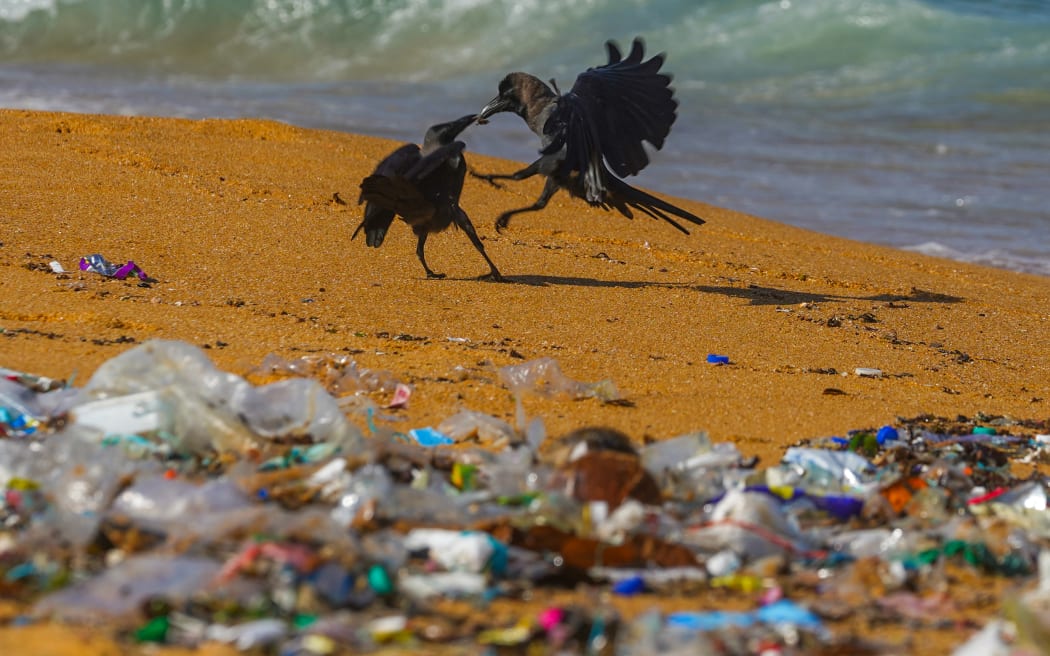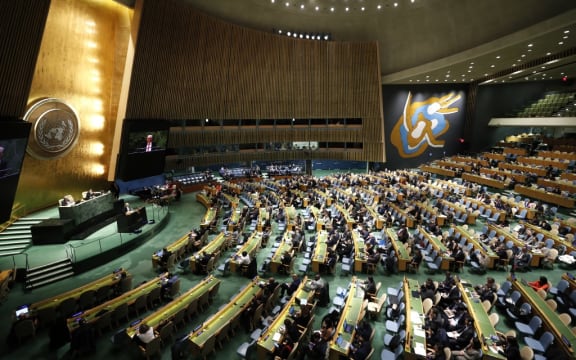
Thilina Kaluthotage / NurPhoto / NurPhoto via AFP Photo: THILINA KALUTHOTAGE
A new United Nations treaty to protect the world's oceans was signed by 67 countries on Wednesday, another step in efforts to reverse the damage done to fragile marine environments by overfishing and other human activities.
The global pact to conserve biodiversity on the high seas was finally agreed in March and formally adopted by the UN in June. It is seen as a crucial tool to meet a target agreed last year to protect 30 percent of Earth's land and sea by 2030, known as 30-by-30.
Despite the nearly 70 signatures at the United Nations General Assembly on Wednesday, the treaty needs to be ratified on a national level before it goes into effect.
"With the signature of the High Seas Treaty, we can safeguard the ocean from human pressures, and get closer to our objective of protecting at least 30 percent of the planet by 2030," said European Environment Commissioner Virginijus Sinkevičius, calling the treaty "our constitution for the ocean."

Sixty-seven nations have signed an agreement on protecting the biodiversity of the oceans but campaigners warn more needs to be done. Photo: JOHN LAMPARSKI / NurPhoto / AFP
Mads Christensen, interim executive director of Greenpeace International, described the signings as a "powerful signal" which should help maintain momentum to meet the 30-by-30 target.
"But this signing is a purely symbolic moment," he said. "Now politicians must bring the treaty home and ensure it is ratified in record time."
The agreement will create ocean sanctuaries where fishing will be prohibited, and also ensure human activity on the high seas is subject to environmental impact assessments.
The International Union for the Conservation of Nature estimates that $500 million ($NZD 845,227) in funding will be required to kickstart the treaty, and a special implementation and capacity-building fund could require another $100m ($NZD169,030) per year.
Threats to the ocean environment have been mounting in recent years as a result of overfishing as well as rising temperatures, and new threats could also emerge from ocean-bed mining and the use of geoengineering technologies to boost the ocean's capacity to absorb carbon dioxide.
Environmental groups say the treaty must be brought fully into effect by 2025 at the latest to ensure the 30-by-30 protection target is reached.
"The ocean can't wait, and with the treaty being in the making for the better part of the past 20 years, there is absolutely no time to waste," said Jessica Battle, an ocean expert with the Worldwide Fund for Nature.
- This story was originally published by Reuters

